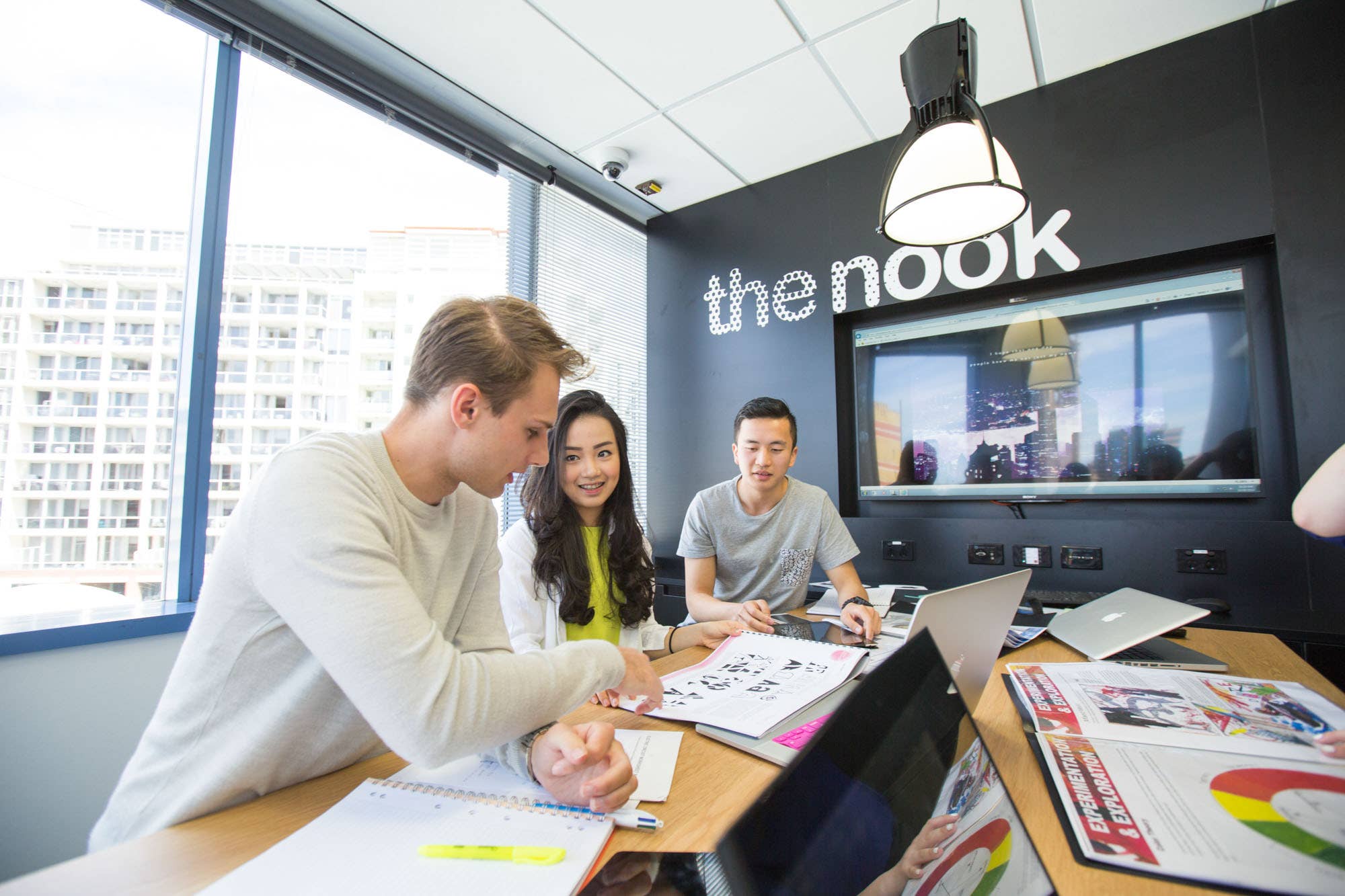The academic team at UTS College are known for their excellence as teachers, but they’re also active researchers tackling important education issues. Academic coordinator Marc Hartl recently presented his work to an industry forum on fostering ethical and effective use of generative AI (Gen AI) through need-supportive teaching.
Marc, who has been with UTS College for more than eight years, oversees the design stream in the Diploma of Design and Architecture. Before joining the College, he worked in fashion, including for Carla Zampatti, taught in the Bachelor of Design in Fashion and Textiles at UTS, and did design history research using literary sources and theory. That experience, he says, informed his transdisciplinary approach to design.
Reconsidering learning in the AI era
Marc’s research into Gen AI began when he saw the impact on student assessments. He says, “We were worried that students were uncritically offloading work to Gen AI, and it was undermining their learning.” He sees Gen AI as a huge disruptor. “We need to reconsider our definitions of learning and design. That means keeping pace with current design practices, creative intellectual property debates, and educational Gen AI approaches.

In design education, assessments are typically project-based and collaborative, rather than traditional exams. “Students work on part of a project, bring it to their tutorial, critique it, get feedback, go away, refine it, and move to the next part of the project,” Marc explains. “We want to set students up to make good AI choices throughout their design projects, whether they’re in class or at home.”
Fostering motivation
The focus at UTS College is on using Gen AI ethically and effectively. Marc and his colleagues draw on educational theories of intrinsic motivation to help students align their values with their actions. “We’re finding that when students feel competent, have autonomy, and belong to a community, they thrive. They’re motivated to create high-quality design projects that use Gen AI in a smart and ethical way,” he says. “All our Gen AI interventions are built on these three student needs.”
Adapting to change
Marc says the industry’s responses to AI vary from early adoption to resistance. “I think it’s an imperative. It’s in the world now and we must make it our friend,” he says. “We provide very explicit guides for students,” he says. “For example, ‘We think Gen AI would be interesting here, or it may save time there, but we don’t think it’s good here for these reasons…’ That’s our approach.”
The project is ongoing. “We’ll review the latest interventions at the end of semester, refine them, and keep going,” Marc says. “Each project leads into the next. We’ll keep asking how we can better guide and support our students.”
See more of Marc’s work here